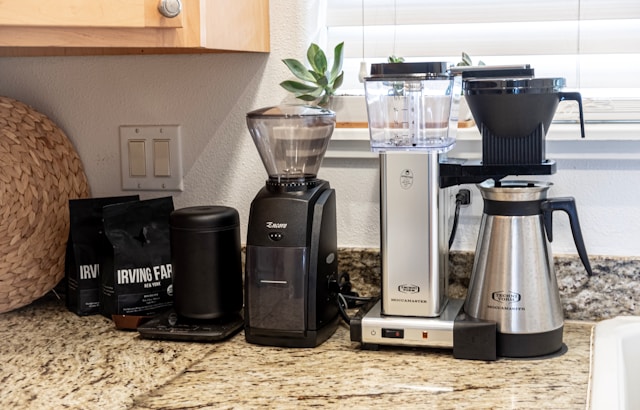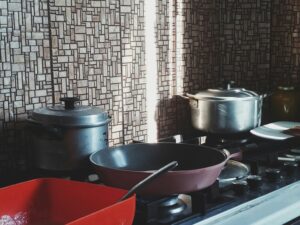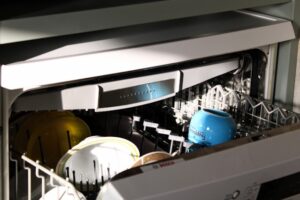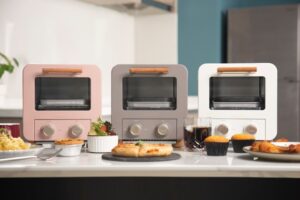In today’s modern homes, the kitchen is more than just a place to cook, it’s where we gather, create meals, and often spend a large portion of our utility budget. With the rising cost of energy and growing concerns over environmental impact, switching to energy-efficient kitchen appliances is one of the smartest moves you can make. These appliances not only reduce your carbon footprint but also help you save money in the long run by cutting down on your monthly energy bills.
Whether you’re building a new kitchen or looking to upgrade your existing one, investing in appliances that are designed to use less electricity and water can significantly reduce household expenses. From refrigerators and dishwashers to ovens and cooktops, energy-efficient options are now widely available and come in a variety of styles and sizes to suit any home.
Why Energy Efficiency Matters in the Kitchen
Kitchen appliances are some of the biggest energy consumers in the home. Traditional models can draw significant amounts of power, especially when used daily. This makes the kitchen a great place to start when aiming to reduce energy consumption. By switching to energy-efficient kitchen appliances, you not only lower your utility bills but also decrease greenhouse gas emissions. Over time, even small changes, like using an induction cooktop or a smart microwave, can add up to significant savings.
These appliances are typically built with advanced technology that optimizes performance while minimizing energy use. Whether it’s better insulation in refrigerators or moisture sensors in dishwashers, every feature is designed with efficiency in mind. Plus, many energy-saving kitchen tips, like using appliances during off-peak hours or keeping filters clean, can further enhance their performance.
Top Energy-Efficient Kitchen Appliances to Consider
Here’s a look at some of the best energy-efficient kitchen appliances that can help you save money:
1. Energy Star Refrigerators
Refrigerators run 24/7, making them one of the most important appliances to replace with an energy-efficient model. Energy Star-rated refrigerators use up to 15% less energy than non-certified models. Look for features like high-efficiency compressors, improved insulation, and temperature management systems.
2. Induction Cooktops
Unlike traditional gas or electric stoves, induction cooktops use electromagnetic energy to directly heat pots and pans. This method is more efficient, transferring up to 90% of the energy to the cookware, compared to about 70% for electric and 40% for gas. Induction cooktops also heat faster and allow for precise temperature control, making them both convenient and cost-effective.
3. Convection Ovens
Convection ovens use fans to circulate hot air, allowing food to cook more evenly and quickly at lower temperatures. This means less energy is needed to achieve the same results as a conventional oven. As one of the best energy-efficient appliances, a convection oven can be a great addition to your kitchen if you cook often.
4. Energy-Efficient Dishwashers
Modern dishwashers with energy-saving settings can clean dishes thoroughly while using less water and electricity. Energy Star dishwashers often include soil sensors, improved water filtration, and more efficient jets. Many also have eco modes that allow you to reduce energy use for lightly soiled loads.
5. Smart Microwaves and Toaster Ovens
Smart microwaves and toaster ovens are smaller and more efficient than conventional ovens, especially for reheating or cooking small meals. They often feature sensors that detect food moisture levels to prevent overcooking and save energy. Look for models with standby power reduction and programmable features to further optimize energy usage.
How to Choose the Right Energy-Efficient Appliances
Choosing energy-efficient kitchen appliances can feel overwhelming with so many options available. Here are a few tips to guide your decision:
-
Check for the Energy Star label: This certification ensures the appliance meets or exceeds federal guidelines for efficiency.
-
Compare energy consumption: Most appliances display estimated annual energy use and cost, helping you compare models quickly.
-
Look for smart features: Many modern appliances come with programmable settings, remote control through apps, and energy monitoring features.
-
Consider the size: Bigger isn’t always better. Choose an appliance that fits your household’s needs to avoid wasting energy on unused capacity.
Tips for Maximizing Appliance Efficiency
Even the best appliances need to be used properly to get the full benefit. Here are some energy-saving kitchen tips to make the most of your investment:
-
Keep refrigerator coils clean and ensure the door seals tightly.
-
Run dishwashers only when full and use the eco or air-dry setting.
-
Use lids on pots when cooking to retain heat and reduce cooking time.
-
Avoid preheating ovens unnecessarily and cook multiple dishes at once.
-
Unplug small appliances like toasters or coffee makers when not in use.
Conclusion
Upgrading to energy-efficient kitchen appliances is a smart, eco-friendly investment that pays off over time. These appliances not only lower your energy bills but also enhance your kitchen’s performance and sustainability. Whether you’re replacing a single appliance or doing a full kitchen overhaul, prioritizing energy efficiency helps both your wallet and the planet.












